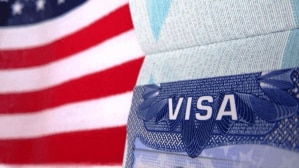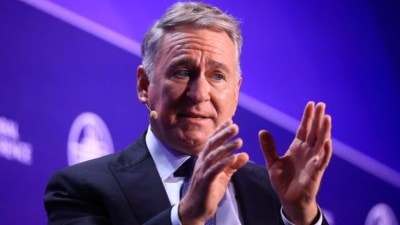By Srinivasa Bharathy
AI has made a significant impact on talent acquisition over the past few years, transforming the way we approach recruitment. It all began with automating the repetitive tasks in talent acquisition, and that’s where AI shone. Imagine this, machine learning algorithms that can analyze thousands of resumes in mere seconds, providing a shortlist of candidates that match a job description while eliminating human bias in the process. That’s a game-changer!
However, AI’s impact goes beyond analyzing resumes. It is changing the entire talent acquisition landscape.AI can transform the entire journey of recruitment. To begin with, AI-based tools can aid recruiters in crafting effective job descriptions and engaging candidates in real time. It can even assess a candidate’s skills based on the job description and provide a swift analysis of their eligibility for the role.
In addition to this, when it comes to diversity and inclusivity, AI can play a crucial role in ensuring that the shortlisted candidates reflect a more diverse pool. AI’s role in diversity and inclusivity extends beyond qualifications. It can actively contribute to a more holistic approach. By analyzing candidates based on skills, backgrounds, and experiences, AI can help create a shortlist that reflects a rich tapestry of individuals, bringing diversity to the forefront. AI can be trained to consider the broader picture, ensuring that organizations are more representative and inclusive, aligning with the evolving values of diversity and equality. This not only enhances the quality of talent but also strengthens the social fabric within the workforce, making it a key component in modern talent acquisition strategies.
AI can also suggest personalized learning for candidates to bridge skill gaps. This means that even if a candidate isn’t quite there yet, AI can identify what they need to learn to be a perfect fit for the job. This process not only helps the organization find the right candidate but also ensures that the talent’s experience with the entire process is positive irrespective of their landing the job.
From a strategic perspective, AI can also predict things like attrition rates and the types of candidates an organization will need in the future. It offers invaluable insights. AI analyzes past data, employee performance, and industry trends to create predictive models, aiding HR professionals in workforce planning. This foresight empowers organizations to proactively address talent needs, optimize recruitment strategies, and stay ahead in a dynamic job market, making AI an indispensable tool in talent acquisition today.
While AI is a game-changer, it isn’t without its challenges. Yes, it can eliminate human biases but it can also introduce biases in the process. The concerns surrounding AI bias are well-founded, particularly because machine learning is at the core of AI model training. For instance, Amazon’s hiring algorithm was found to exhibit bias towards males in software roles. This bias stemmed from the algorithm’s decade-long analysis of resumes, leading it to favor male candidates due to the male-dominated nature of the industry. Amazon recognized this issue and subsequently adjusted the algorithm to remain neutral to gender-related keywords.
This shows that to effectively manage AI bias, several essential steps need to be taken to ensure fairness and accuracy within the models. Firstly, it is imperative to train the models on diverse datasets that accurately reflect real-world scenarios. This entails incorporating a broad spectrum of examples to mitigate any inherent bias in the training data.
In addition to these measures, conducting periodic reviews of the recruitment process is of utmost importance. Ensuring that the teams responsible for creating and maintaining AI models are diverse and inclusive is key to reducing the risk of bias. Diversity within these teams introduces varied perspectives, enhancing the overall fairness of AI decision-making.
Lastly, the inclusion of humans in the loop is a critical step. Even the most advanced AI systems can benefit from human oversight. Humans can intervene when necessary to rectify potential biases and ensure that AI decisions remain fair and ethically sound. This human-AI collaboration is a valuable component of bias management and contributes to the overall integrity of AI applications.
AI has and will continue to change the role of HR professionals as well. Going forward, HR teams must equip themselves with an understanding of how these AI models work at a functional level. The great thing is that AI takes care of the repetitive tasks, freeing up more time for HR professionals to be strategic thinkers rather than just task-doers.
HR teams can now focus on strategic thinking, enhancing the talent’s experience, and optimizing operations with AI tools. It’s all about making HR more strategic and less administrative, especially in tasks like resume screening and ranking. Instead of getting bogged down in routine tasks, HR professionals can harness the power of AI to add more value to their work.
The future holds innovative approaches like gamification and skills assessment in candidate engagement, improving diversity, nurturing passive candidates, and redefining the entire recruitment process, from creating job positions to onboarding employees.
The author is CEO and MD, Adrenalin eSystems










